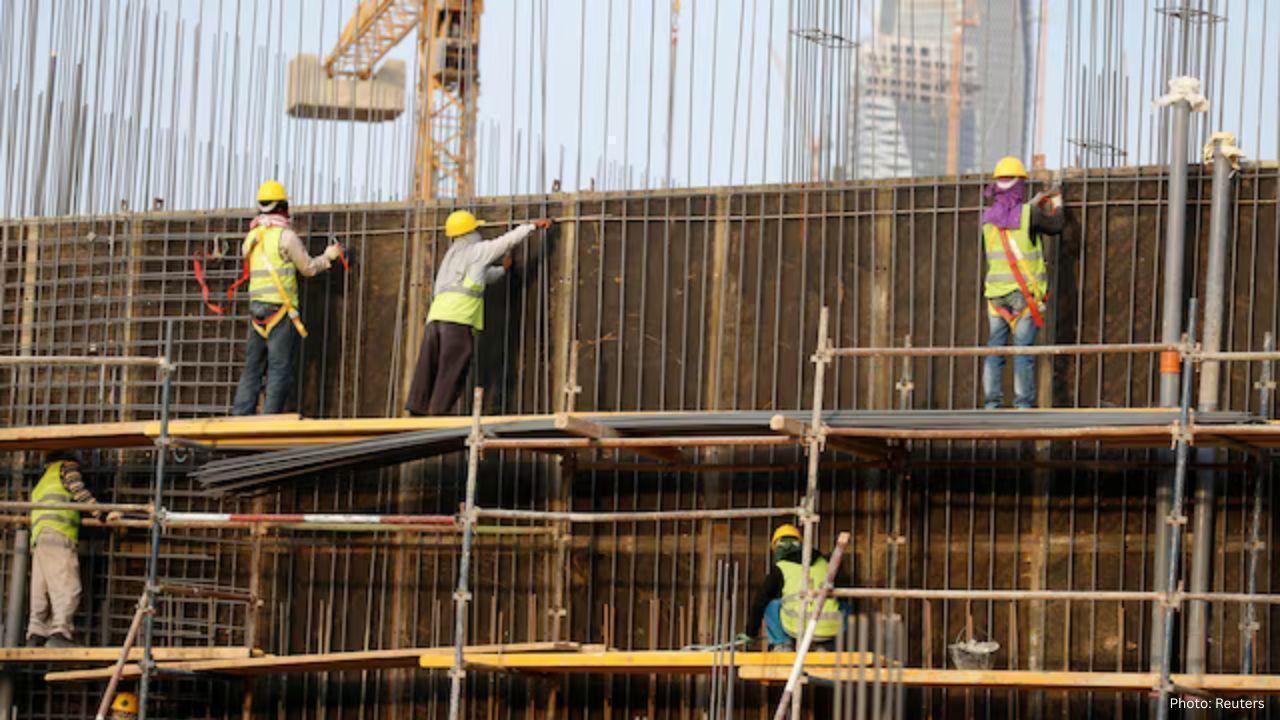You have not yet added any article to your bookmarks!

Join 10k+ people to get notified about new posts, news and tips.
Do not worry we don't spam!

Post by : Anis Farhan
Retail has experienced one of the most transformative shifts in modern economic history. What was once dominated by brick-and-mortar stores has now expanded into a highly dynamic e-commerce ecosystem. Consumers today enjoy choices and convenience unimaginable a few decades ago, whether through desktop shopping or mobile apps. The evolution is not just about technology—it reflects changing consumer behavior, globalization, urbanization, and even social trends. Retail, once defined by physical presence, now thrives in a hybrid model that combines online innovation with traditional touchpoints, reshaping the way we buy, sell, and interact with products.
Historically, brick-and-mortar stores formed the backbone of commerce. From small local shops to massive department stores, physical retail offered tangible interaction, immediate purchases, and personal customer service. Stores were community hubs, often reflecting cultural trends, regional preferences, and local economic activity. Malls became social spaces, combining shopping with entertainment, dining, and leisure. The personal experience of visiting a store, testing products, and interacting with sales associates created an emotional connection that online shopping initially lacked.
Before the internet revolution, retail innovation included mail-order catalogs, which allowed customers to browse and purchase products without leaving home. Companies like Sears and Montgomery Ward pioneered this model, creating convenience and access previously unavailable to remote consumers. The late 1990s and early 2000s marked the emergence of online shopping. Early e-commerce sites offered limited products and rudimentary interfaces, but they hinted at a future where convenience and global access would dominate. This period also taught retailers critical lessons about logistics, customer trust, and the importance of digital user experience.
The proliferation of high-speed internet, mobile devices, and secure payment systems propelled e-commerce into the mainstream. Giants like Amazon, Alibaba, and Flipkart reshaped consumer expectations, offering rapid delivery, extensive product catalogs, and customer reviews that enhanced transparency and trust. E-commerce offered unmatched convenience: the ability to compare prices instantly, explore global brands, and shop 24/7. Small and medium businesses leveraged online platforms to reach customers far beyond their local geography, leveling the playing field and expanding competition. Today, online retail is no longer a niche—it is a primary channel for millions of consumers worldwide.
Rather than eliminating physical stores, e-commerce has prompted many retailers to adopt an omnichannel strategy. Brick-and-mortar locations are now integrated with online platforms, creating seamless experiences such as click-and-collect, in-store returns for online purchases, and digital kiosks. Omnichannel strategies allow retailers to combine the best of both worlds: the tactile, immersive experience of physical stores with the speed, personalization, and data-driven insights of online shopping. This integration is especially crucial for luxury brands, where in-person interaction remains important for building brand identity and customer loyalty.
Consumer behavior has evolved alongside technological advances. Shoppers increasingly expect personalized experiences, tailored recommendations, and frictionless transactions. Reviews, ratings, and social media influence purchasing decisions more than traditional advertising. The pandemic accelerated e-commerce adoption and further entrenched expectations for fast delivery, easy returns, and digital convenience. In response, retailers invest heavily in technology, logistics, and customer relationship management to meet and exceed these expectations.
The shift from physical stores to e-commerce has had profound economic and social implications. Retail has become global, with consumers accessing brands from different countries at the click of a button. Emerging markets benefit from new opportunities for entrepreneurship and small business growth. However, the transition also presents challenges: supply chain complexity, cybersecurity risks, and market saturation. Retailers must balance expansion with sustainability, efficiency, and ethical considerations, ensuring long-term resilience in an increasingly competitive landscape.
Technology continues to shape retail in innovative ways. Artificial intelligence powers recommendation engines, dynamic pricing, and inventory forecasting. Augmented reality enables consumers to visualize products in real-world settings before purchase. Voice assistants and chatbots facilitate faster interactions, while data analytics inform marketing strategies and consumer engagement. Blockchain and digital payments enhance transparency and security, building consumer trust. These innovations not only improve operational efficiency but also enrich the customer experience, creating a more immersive and responsive shopping environment.
Modern retail is increasingly accountable for environmental and social impact. Consumers demand sustainable practices, such as eco-friendly packaging, ethical sourcing, and circular economy initiatives. Online retailers are exploring ways to reduce carbon footprints through efficient logistics and local fulfillment centers. Additionally, transparency in labor practices, fair trade, and corporate social responsibility influence brand reputation and consumer loyalty. Sustainability is no longer optional—it is a critical differentiator in a competitive market, aligning business success with broader societal values.
Traditional retailers face significant challenges in adapting to e-commerce dominance. Declining foot traffic, rising operational costs, and competition from online marketplaces necessitate strategic reinvention. Many brick-and-mortar stores now function as showrooms or experience centers, emphasizing engagement and brand storytelling rather than mere transactions. Successful adaptation requires investment in technology, staff training, and integrated marketing strategies. Retailers that embrace change and innovation can thrive, leveraging their physical presence as a complementary advantage to digital platforms.
The future of retail is likely to be characterized by hyper-personalization, immersive experiences, and global connectivity. Artificial intelligence, machine learning, and augmented reality will enable more interactive and predictive shopping experiences. Social commerce—integrating retail into social media platforms—will continue to grow, making discovery, engagement, and purchase seamless. While technology will remain a driving force, human-centric experiences, ethical practices, and sustainability will define the most successful retailers. The retail landscape will continue to evolve, reflecting broader societal, economic, and technological trends.
Retail has transformed dramatically, moving from physical stores to sophisticated e-commerce ecosystems. This evolution reflects technological advancement, changing consumer expectations, and global connectivity. While challenges remain for traditional retailers, opportunities abound for those who embrace innovation, integrate digital and physical experiences, and prioritize sustainability and customer engagement. The journey of retail evolution underscores a fundamental truth: adaptability and responsiveness to consumer needs are the ultimate determinants of success in a rapidly changing marketplace.
This article is intended for informational purposes only. It summarizes trends and observations in the retail industry without promoting any specific company, brand, or investment advice. Readers should conduct their own research for business decisions or personal investments related to retail.










Two Telangana Women Die in California Road Accident, Families Seek Help
Two Telangana women pursuing Master's in the US died in a tragic California crash. Families urge gov

Ranveer Singh’s Dhurandhar Roars Past ₹1100 Cr Worldwide
Ranveer Singh’s Dhurandhar stays unstoppable in week four, crossing ₹1100 crore globally and overtak

Asian Stocks Surge as Dollar Dips, Silver Hits $80 Amid Rate Cut Hopes
Asian markets rally to six-week highs while silver breaks $80, driven by Federal Reserve rate cut ex

Balendra Shah Joins Rastriya Swatantra Party Ahead of Nepal Polls
Kathmandu Mayor Balendra Shah allies with Rastriya Swatantra Party, led by Rabi Lamichhane, to chall

Australia launches review of law enforcement after Bondi shooting
Australia begins an independent review of law enforcement actions and laws after the Bondi mass shoo

Akshaye Khanna exits Drishyam 3; Jaideep Ahlawat steps in fast
Producer confirms Jaideep Ahlawat replaces Akshaye Khanna in Drishyam 3 after actor’s sudden exit ov